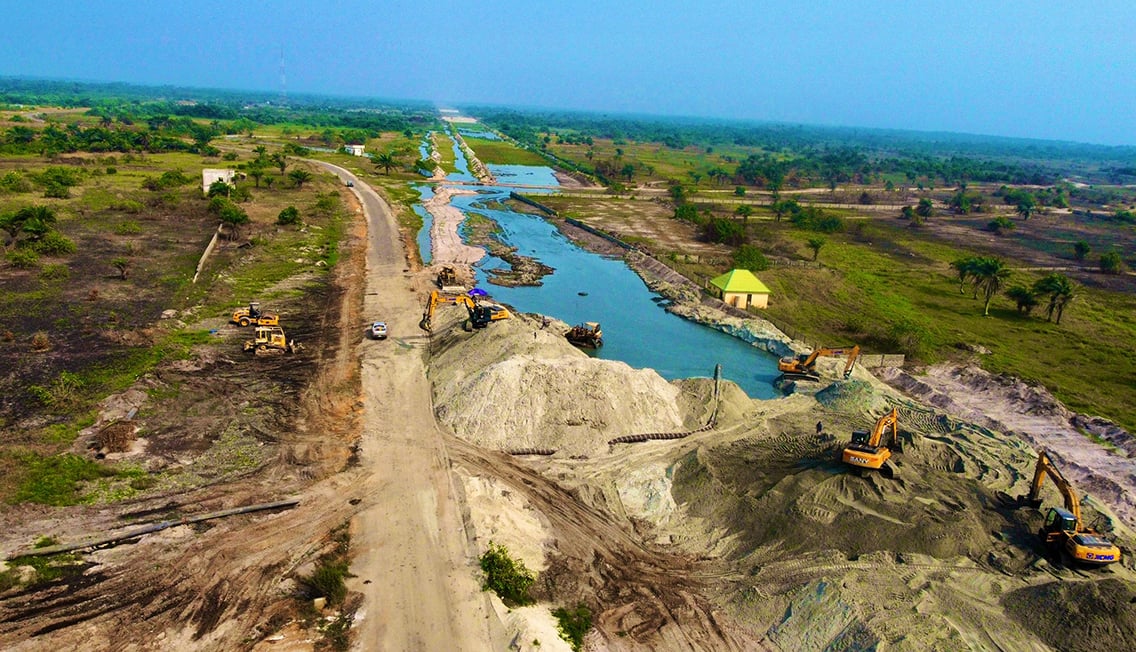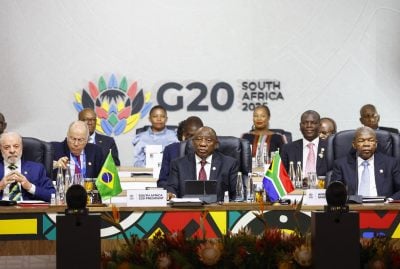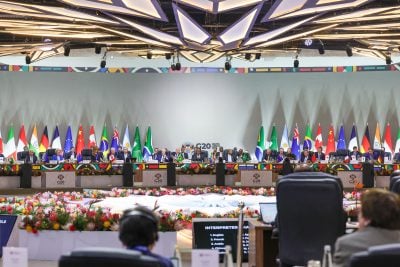This article was produced with the support of ECOWAS Bank for Investment and Development
Infrastructure is the bedrock of integration. Roads, ports, power grids and digital networks are what turn political visions of free trade areas into functioning markets. For the ECOWAS Bank for Investment and Development (EBID), this reality has shaped its mission from the start. The Bank has emerged as the region’s leading financier of infrastructure, steadily expanding its portfolio to knit together West Africa’s economies and prepare them for the opportunities of the African Continental Free Trade Area (AfCFTA).
By December 2024, EBID’s cumulative interventions had reached UA 3.41bn ($4.54bn) across 318 projects, with nearly half channelled into infrastructure. From a modest UA 121m in 2004, the Bank’s commitments have multiplied more than twentyfold, rising to UA 2.75bn for 194 active projects. “EBID has moved from being a modest fund into a fully-fledged regional development finance institution,” notes one ECOWAS official. “Its ability to mobilise capital and deliver cross-border impact is a sign of West Africa’s growing financial maturity.”
Connecting markets
This momentum is reflected in the Bank’s recent approvals. In June 2025, EBID’s board of directors signed off on new commitments worth €174m and $125m in sectors ranging from renewable energy and agriculture to education and transport. In Togo, the Bank is financing six vocational training centres expected to train nearly 3,500 learners each year, a direct response to youth unemployment and industrial skills gaps. In Guinea, more than €95m is being invested in three hydroelectric micro-power stations alongside €29m for modernising agricultural schools. In Côte d’Ivoire, a $25m facility for clinker imports will ease supply bottlenecks in a booming construction sector, while in Nigeria, a $100m loan is backing a 47-km stretch of the Lagos–Calabar motorway, a coastal corridor linking isolated agro-industrial zones and expanding trade along the Gulf of Guinea.
Earlier in 2025, the Bank approved another $230m in facilities, including a line of credit to Sterling Bank of Nigeria to support small and medium enterprises (SMEs) across priority sectors; a loan to Benin Cashew to expand local processing capacity; and co-financing for the Kano–Maradi railway, linking northern Nigeria with Niger. That project alone is expected to create over 100,000 construction jobs and 20,000 permanent posts, while providing a physical spine to connect Niger, a landlocked state, to seaports and regional trade flows.
Such interventions go beyond bricks and mortar. They signal EBID’s role as an integrator: investing in assets that reduce freight costs, harmonise standards and create the connective tissue required for a functioning regional economy.
Corridors of trade
The concept of “regional corridors” has become central to Africa’s development agenda. In West Africa, EBID has ensured its investments complement flagship initiatives such as the Abidjan–Lagos Corridor Highway, an African Development Bank-backed six-lane road that will link five countries over 1,028 kilometres. By funding feeder routes and complementary infrastructure, EBID ensures these corridors translate into value chain development rather than become isolated showpieces.
At the same time, the Bank is tackling the softer side of integration: access to finance and risk reduction. Its lines of credit, including €70m extended to Vista/Coris Bank, expanding SME access to trade finance. In May 2025, EBID signed a memorandum of understanding with the African Trade & Investment Development Insurance (ATIDI) to provide guarantees and de-risk private sector transactions. “Integration requires more than roads – it needs capital that flows across borders with confidence,” says an EBID executive. “Our partnership with ATIDI makes that possible.”
From commodities to value chains
Industrialisation and value addition are now at the heart of EBID’s agenda. In Benin, the Bank’s support for cashew processing aligns with government plans to process half of annual production locally, creating more than 1,600 jobs. In Côte d’Ivoire, stabilising cement supply feeds directly into the country’s construction boom. By financing vocational training centres and agricultural schools, EBID is tailoring human capital development to the needs of industrial value chains, while renewable energy projects in Guinea provide the reliable power that agro-processors and manufacturers require.
Taken together, these initiatives help shift West Africa away from raw commodity dependence and towards integrated supply chains capable of competing in global markets.
Catalysing private capital
For all its efforts, EBID alone cannot finance West Africa’s transformation. Its real leverage lies in catalysing private investment. By offering long-term loans, credit lines and guarantees, the Bank reduces risk and signals credibility to investors. Its $180m facility for Mota-Engil Nigeria in the Kano–Maradi railway is an example of how public–private partnerships can be structured to deliver large-scale regional infrastructure. This confidence is reinforced by EBID’s own success in mobilising resources.
By 2024, the Bank had raised $5.97bn and signed forward contracts worth €1.91bn and $2.04bn, drawing on instruments such as syndicated loans. “West Africa has shown it can attract global capital when backed by credible regional institutions,” says a senior banker involved in the deals.
Aligning with continental and global agendas
EBID’s work is closely aligned with continental strategies. Agenda 2063, the African Union’s blueprint for integration and prosperity, calls for robust infrastructure and equitable spatial connectivity – objectives that EBID’s projects directly advance. Similarly, the Bank’s activities dovetail with AfCFTA, which the World Bank estimates could generate $450bn in gains by 2035, much of it from cutting red tape and reducing trade costs.
But the Bank is also extending its relevance to global forums. In February 2025, EBID signed its first partnership with the European Investment Bank, securing a €100m line of credit as part of a broader €150m envelope. The facility, expected to mobilise at least €300m, will finance renewable energy, sustainable agriculture and water treatment. The partnership aligns with both the EU’s Global Gateway and ECOWAS Vision 2050, underscoring how regional integration also contributes to climate goals and global stability.
Looking forward
As the G20 convenes in Durban, West Africa’s integration journey stands out as a story of ambition grounded in finance. EBID has grown from a modest fund into a $4.5bn institution capable of driving structural change. Its focus on infrastructure, industrial value chains, trade corridors and human capital has reduced market fragmentation and laid the foundations for long-term growth.
Its partnerships with global financiers bring credibility and scale, while its alignment with continental strategies ensures relevance.
The path ahead will demand even more: deeper partnerships, expanded green and digital financing, and support for policy harmonisation that enables physical investments to achieve their full impact. EBID’s leadership recognises that investing in regional integration is not a technical exercise but a strategic commitment to Africa’s global future.
“By investing in itself, Africa invests in its place in the world,” says one regional policymaker.
That is a message that resonates not only in West Africa but also in the corridors of the G20 and beyond.

 Sign in with Google
Sign in with Google 



